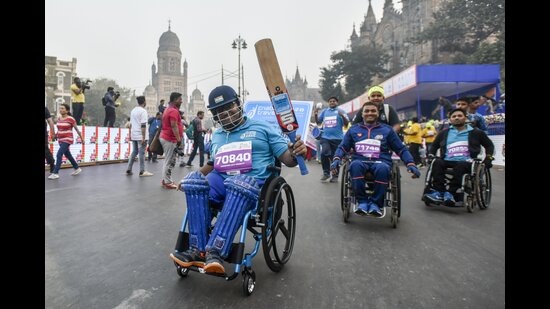Disabilities act: End the certification raj
The bureaucratisation of the recognition of a disability not only makes us in India lag in the international scales of human development, but also makes a person hesitant to approach the judiciary and the bureaucracy to determine their access to health care and welfare
The Supreme Court (SC) have said that the Rights of Persons with Disabilities Act, 2016, is not being implemented in letter and spirit, and this needs to change.

In the Vikash Kumar v. Union Public Service Commission and Ors, the SC bench ruled that an individual suffering from dysgraphia (writer’s cramp) is entitled to a scribe in the Civil Services Examination (CSE). It added that the government needs to shed its “fundamental fallacy” that only persons with a specific disability of 40% or more should be provided with a scribe.
It is indeed sad that the interpretation of disability has been left to percentages. However, this should not be the case as the law defines that a “board” or the “competent authority”, which determines the disability, shall do so by either affirming the disability or negating the disability. There is no middle ground. This is an essential aspect of the disability legislation as a person partially affected by a disability carries the stigma and loss of opportunity in various forms.
While it is true that this will open a floodgate of loss of opportunity claims, the argument against the relaxation of the disability norms to be more inclusive lacks merit.
India is a signatory to The Convention on the Rights of Persons with Disabilities. However, in 2020, a United Nations report indicated that 44% of the indicators are not followed by the countries in the Asia-Pacific region.
Narrowing it to India, the access to justice and the right to be inclusive is a challenge because India has stringent requirements for being classified as a “disabled”.
The bureaucratisation of the recognition of a disability not only makes us in India lag in the international scales of human development, but also makes a person hesitant to approach the judiciary and the bureaucracy to determine their access to health care and welfare. So often, people with disabilities, especially mental disabilities, will never reach the corridors of welfare as they are dropped at the entrance of the disability act by a certification regime.
Added to this layer of certification is the determination of the extent of the disability. This may prove especially difficult for people suffering from mental health issues and disabilities. The courts and the government must, in this case, rely on equity and provide welfare to the disabled. The number reported by the government, especially on mental disability, stands at an abysmal 3%, whereas the national survey indicates close to 14% suffer from this disability. While these are reported numbers, one can only assume that these are not the actual ones considering the existence of the certification bureaucracy.
Srikant Parthasarathy & Amirthalakshmi R are professors of international law
The views expressed are personal





